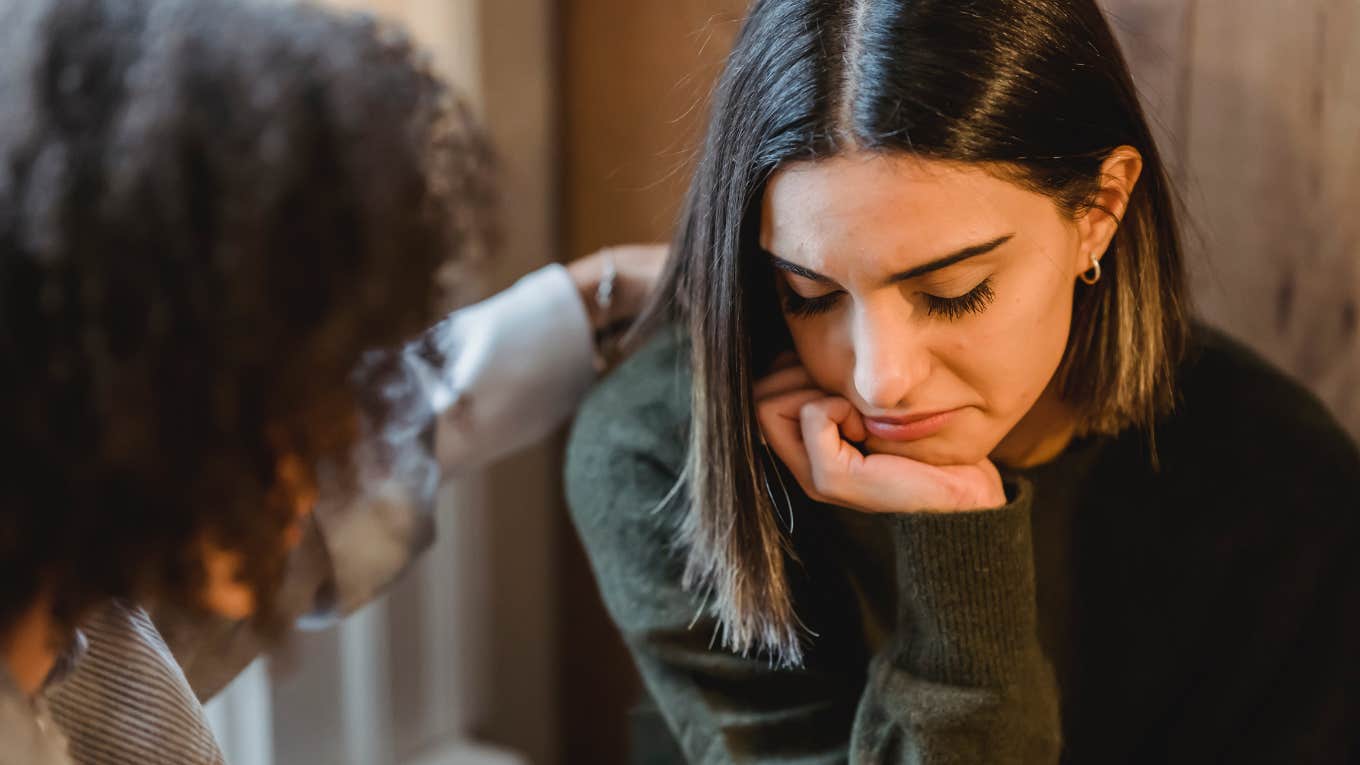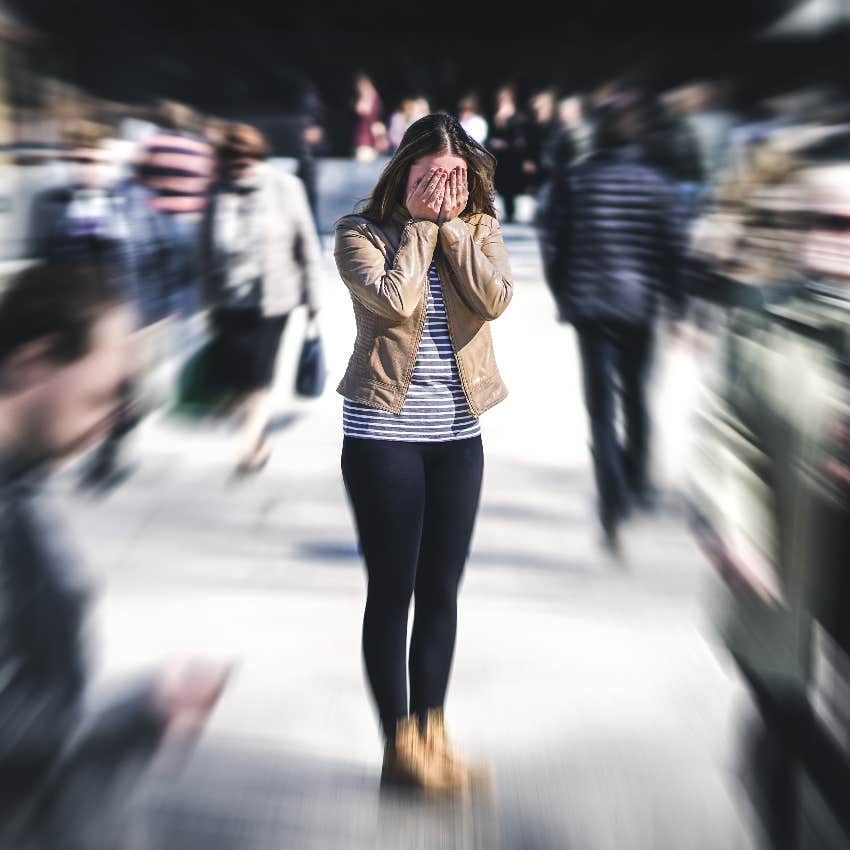The True Hidden Pain Behind People Who Say They Don't Need Anyone
We all need someone.
 Liza Summer / Pexels
Liza Summer / Pexels Bobbi Banks is a London-based therapist and coach who offers her followers accessible insights on mental health, specifically surrounding our relationships with ourselves and others. Much of Banks' work is focused on setting healthy boundaries and helping people heal from past traumas.
In a recent Instagram post, she shared some insight into those who are independent to a fault.
"A healthy amount of independence is great and much needed to allow us to function as adults," she wrote in the caption of her post. "Sometimes, however, we can go to the extreme end of it and become hyper-independent, which often points to unresolved pain or trauma."
The therapist shared 6 hidden reasons why people say they don’t need anyone.
1. ‘I’ve been let down too many times’
It’s always vulnerable to rely on others. If we’ve been disappointed by the very people who were supposed to care for us, it makes sense that our reaction to being let down would be to isolate ourselves, in hopes that we won’t be hurt again.
2. ‘My trust has been betrayed’
Trust is essential in any relationship, whether it’s romantic, platonic, familial, or professional. Trust is something that’s earned, and not necessarily given freely, especially if you’ve been betrayed in the past. Learning to build trust back up is a muscle. It takes practice.
3. ‘I’ve had to figure everything out on my own’
People who don’t have a community to rely on often shift to being hyper-independent. They maintain the belief that they don’t need help from others — that they can survive and thrive on their own.
This relates to issues of trust, in that very independent people don’t feel as though they can trust anyone but themselves. Yet the reality is that we all need outside support, even if it’s hard to accept.
4. ‘I know the pain of abandonment and rejection’
Often, our abandonment wounds are formed by the way we created a sense of attachment to our caregivers at a young age, and how they showed up — or didn’t show up — for us throughout our lives. Attachment styles are complex, and the ways we attach to others play out in all our relationships.
Having a secure attachment style means that a person trusts others to be there for them. Someone who experienced being abandoned or rejected at a crucial point in their development will likely have a harder time establishing a healthy attachment style, but that doesn’t mean it’s impossible.
Learning about attachment patterns and recognizing your own unique style is the first step to knowing yourself fully, and to understanding how you relate to other people in your life.
5. ‘I had no one I could rely on’
If we’ve moved through the world without other people we could consistently depend on, we might feel like we’re always alone in our struggles.
 Photo: Tero Vesalainen / Shutterstock
Photo: Tero Vesalainen / Shutterstock
Being vulnerable when we’re already in pain is never easy, but reaching out and asking for support is crucial to our emotional survival and sense of stability.
6. ‘I always had to be strong and dependable’
People who grew up too fast or had to act as their own parental figures often believe that they always need to be a pillar of strength and not show any emotion, which they might even equate to weakness.
Yet expressing your fears, concerns, and emotions doesn’t actually correlate to not being strong and dependable. It takes practice to open up and let people in, but the more we connect, the better we feel.
It might seem easier to exist in an extremely independent way, but the reality is that we all need other people to truly thrive. No person is an island. Our individual livelihoods depend on the community we’re a part of. Opening ourselves up to being hurt is an essential part of the human experience, no matter how difficult it might seem.
Alexandra Blogier is a writer on YourTango's news and entertainment team. She covers relationships, pop culture and all things to do with the entertainment industry.

